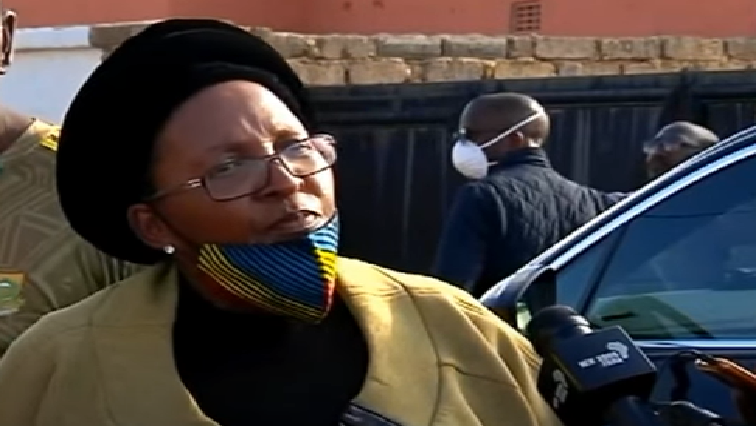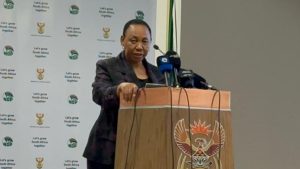The Gauteng government, together with the City of Johannesburg, has launched a new strategy to stop land invasions and the mushrooming of informal settlements. They’ll be deploying 1 500 community patrollers across the province to identify and stop illegal occupations.
Gauteng Human Settlements MEC, Lebogang Maile, unveiled the initiative in Lenasia, south of Johannesburg, on Monday.
The south of Johannesburg is a major hotspot for land invasions in Gauteng.
The provincial government says illegal land occupations have gotten out of hand and that criminal syndicates are taking advantage of lockdown regulations that outlaw evictions.
Community Safety MEC Faith Mazibuko says, “And we wish to send a message to all the syndicates: ‘Your days are numbered.’ We know you by name now. So, be careful about stealing our land. Wait for processes. Premier said there’ll be rapid land released. Wait for that process. So, wait for us to release the land and be able to allocate it to proper (recipients). So, to all those that are busy selling the land, the law enforcement officers are now on track and will make sure that no other incidents do happen here in Gauteng.”
Gauteng government, CoJ launch anti-land invasion strategy
Lenasia Extension 9
While the initiative was being unveiled at Lenasia Extension 9, just across the road, a group of people had staged a protest. Residents of the newly-established informal settlement of Patsing have vowed not to move from their homes.
Community member Thabo Molatudi says the government had initially promised to provide them with services but has since changed its tune.
“The only other tension that rises now, it only rises because the Indian community on the other side does not want to see us as black people living next to them. And it has been clear from the onset because the Department of Housing agreed to formalise and electrify Patsing. But after the meeting that was set up by Indians at Extension 8, at Rosepark, then everything changed, simply because Indians complained to say black people cannot occupy land next to them and everything started to change.”
Residents’ complaints
Johannesburg Mayor, Geoff Makhubo, says the surrounding communities have been complaining about the strain on water and electricity infrastructure caused by land invasions. He says residents are also complaining that their bonded houses are losing value.
Makhubo blames the surge in land grabs on the Democratic Alliance (DA) and Economic Freedom Fighters (EFF) coalition that had until recently been in charge of the running of Johannesburg.
“Now as we speak, we’ve got 214 informal settlements. So, there has been a growth in the last three years of about 40 odd informal settlements, and that has been a result of ineptitude by the city government, allowing a political party to control the grown of the city. That behaviour and attitude are being extended now. In the last six months, we’ve had this one behind us; the other week we had the one on the N12; the other one that myself and the MEC went to in Lawley. So, it’s just been anarchy, and it’s the same people. I think because most of them are empty, are waiting for tenants.”
Gauteng Human Settlements MEC, Lebohang Maile, says they’ll be taking aim at crime syndicates as they intensify the fight against lawlessness.
“What we’re saying is that this is just anarchy and it has to be dealt with as such. It can’t be right that syndicates will rise, identify land, cut stands, and start selling those stands to our people, and later, we’ll be asked questions; ‘are we providing services? Are you effective? Are you not deserting our people?’ And all that. So, we want to prevent that. So that we don’t have anarchy. Otherwise, it’s getting out of hand. We’re gonna have lawlessness. We’re not going to have a country if we leave it like that.”
Maile says they’re seeking a blanket court interdict to evict people who have occupied land illegally. He says that court interdicts that have already been secured will be executed once the lockdown restrictions are no longer in place.
The Gauteng MEC for Infrastructure Development, Tasneem Motara speaks to Tsepiso Makwetla:






